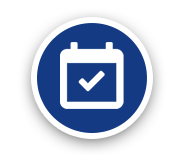If you or someone you are with feels they are having a heart attack, call 9-1-1 immediately.

Heart Attack
What Is a Heart Attack?
A heart attack or a myocardial infarction occurs when blood flow to heart muscle decreases or stops. It is an emergency, and you need medical attention immediately. A heart attack is a serious but common condition.
Emory Healthcare has one of the top heart health centers in the nation. We are committed to providing a high level of care to meet your needs quickly or help you prevent serious heart conditions.
If you have a family history of heart attack or concerns about your heart health, we can help.Heart Attack Symptoms
Some people have mild symptoms of a heart attack. Others have severe signs. And some have none.
Common symptoms include:
- Chest pain, pressure, tightness, squeezing or aching
- Cold sweat
- Discomfort that spreads to your shoulder, arm, back, neck, jaw or teeth
- Fatigue
- Heartburn or indigestion
- Lightheadedness or sudden dizziness
- Nausea or upset stomach
- Shortness of breath
Women sometimes have different symptoms of heart attack. It’s important to never discount symptoms. Seek medical care immediately. You can also learn more about Emory Heart & Vascular care for women’s heart conditions.
Heart Attack Treatment
Diagnosing a Heart Attack
You will have a blood test (or a series of them) to help diagnose a heart attack. Other tests include:
- Angiogram: Shows areas of restricted blood flow
- Cardiac catheterization: Provides an image of the blocked artery
- CT scan or MRI: Shows a detailed scan of your heart
- Echocardiography: Sound waves create images of your heart
- EKG: Records the heart’s electrical activity
- Nuclear heart scan: Takes pictures of your heart, enhanced by injected radioactive dye
Your doctor will determine which tests you need based on your symptoms and health history.
Risk Factors for Heart Attack
Men aged 45 and older and women aged 55 and older are more likely to have a heart attack.
Other factors that increase your risk are:
- Family history: Parents, grandparents or siblings who had early heart attacks
- Illnesses: Diabetes, high cholesterol and high blood pressure
- Lifestyle: High stress, unhealthy diet and use of tobacco or illegal drugs
- Overweight: Obesity and sedentary lifestyle
Talk to your doctor if you have a family history of heart attack or if you have concerns about your heart health.
Causes of Heart Attack
Your heart needs a constant supply of blood to function. Blood carries oxygen that keeps the heart muscle going.
But fat, cholesterol and other substances can build up in the vessels that bring blood to the heart (coronary arteries). They create deposits called plaques.
A plaque can rupture and develop into a clot that blocks blood flow. A heart attack occurs when the heart can’t receive blood from the arteries.
Heart attacks can also occur for other reasons:
- Anomalous coronary arteries: Arteries are in abnormal positions and can get squeezed or compressed
- Coronary artery embolism: A clot lodges in a coronary artery
- Injuries to the coronary arteries: Tears in the arteries or spontaneous coronary artery dissection (SCAD) can interrupt blood flow
- Spasms in the coronary arteries: Restrict blood flow and cut off blood supply
Your doctor will look for the cause of your heart attack based on your health history and symptoms.
Find an Emory Doctor
Emory Healthcare doctors provide specialized treatment and research the latest advancements.
View Emory Physician ProfilesExplore our Network
To expand your options, explore our network of providers throughout Atlanta and the surrounding counties.
Make an Appointment at Emory Heart & Vascular
Create a MyChart account to schedule online or call 404-778-0175 to schedule an appointment.
* View our call center hours
Please visit our privacy policy for more information.


